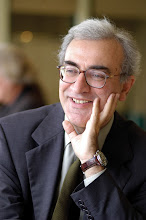Where Friedman made allusions to the superiority of economic freedom over political freedom in his defense of Pinochet, the Chicago group institutionalized such a hierarchy in a 1980 constitution named after Hayek's 1960 treatise The Constitution of Liberty. The new charter enshrined economic liberty and political authoritarianism as complementary qualities. They justified the need of a strong executive such as Pinochet not only to bring about a profound transformation of society but to maintain it until there was a "change in Chilean mentality." Chileans had long been "educated in weakness," said the president of the Central Bank, and a strong hand was needed in order to "educate them in strength." The market itself would provide tutoring: When asked about the social consequences of the high bankruptcy rate that resulted from the shock therapy, Admiral José Toribio Merino replied that "such is the jungle of . . . economic life. A jungle of savage beasts, where he who can kill the one next to him, kills him. That is reality."
But before such a savage nirvana of pure competition and risk could be attained, a dictatorship was needed to force Chileans to accept the values of consumerism, individualism, and passive rather than participatory democracy. "Democracy is not an end in itself," said Pinochet in a 1979 speech written by two of Friedman's disciples, but a conduit to a truly "free society" that protected absolute economic freedom. Friedman hedged on the relationship between capitalism and dictatorship, but his former students were consistent: "A person's actual freedom," said Finance Minister de Castro, "can only be ensured through an authoritarian regime that exercises power by implementing equal rules for everyone." "Public opinion," he admitted, "was very much against [us], so we needed a strong personality to maintain the policy."
(Continua)




Sem comentários:
Enviar um comentário